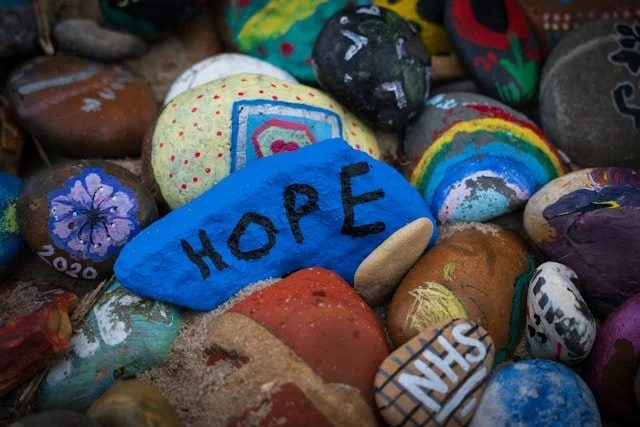Just over a hundred years ago the world was mired in the Great War, what would come to be called World War I. Parallel trenches were constructed across Europe. Millions of young men with bayonetted rifles in hand lined the muddy ditches. Fighting was brutal with thousands of lives lost for gains measured in feet, not miles.
Trenches may be a thing of the past when it comes to warfare, but they are alive and well when it comes to political conversations. We line up shoulder-to-shoulder with our brothers-in-arms and fire rounds across no man’s land to the other side. Any hint that those standing in the trench next to you might not be in complete political alignment results in charges of treason.
The Bible stands over our partisan allegiances and offers correction to the way our world evaluates politics. The question isn’t whether or not my political thinking is out of step with God’s Kingdom ethics, the question is where? We all have blind spots and we need the Bible to offer correction.
We also need to be charitable to one another as we navigate the difficult reality of living as citizens of heaven in America. The issues are complex and the application of biblical truths to our contemporary political situation is more challenging and nuanced than talking heads would have you think.
I’ve been discouraged that there have been those who have been frustrated with me, gossiped about me, and even left the church over my political views. Some rumors have been false. And others have been misunderstandings. Furthermore, I am the first to acknowledge how challenging political discernment is today. I need to continue to grow in understanding and wisdom and value conversations that help me along that path.
So, what do we believe at New Life? We actually include a statement in our Elder Staff Teaching Doctrinal Statement[i] that clarifies our views. Below is our best attempt at bringing the authority of the Bible to bear on understanding our contemporary politics. If you have any questions about this statement or disagreements, I encourage you to reach out so that we can have a conversation.
Whatever we do, let us echo Paul’s admonition in Ephesians 4:1, “I therefore, a prisoner for the Lord, urge you to walk in a manner worthy of the calling to which you have been called, with all humility and gentleness, with patience, bearing with one another in love, eager to maintain the unity of the Spirit in the bond of peace.”
Here is our statement about politics at our Elder Staff Teaching Doctrinal Statement at New Life:
We believe Christians are to live peaceful lives in submission to all civil authorities, whom God ordains as His servants for His purposes. While it is God’s will that all civil authorities honor Him in their service, Christians are to submit to them regardless of their moral or spiritual character. There is blessing in submitting to God even through unrighteous leaders.
Jesus is the center of our worldview and He unifies us with other believers beyond ideology. That means we have more in common with political rivals who love Jesus than political allies who do not know God. Politically, we are not partisan nor place ideology above theology. There is no political party that wholly represents our beliefs while there are aspects of most political parties that we agree with. We are pro-life, concerned for the welfare of the outcast and those who lack influence and power. We believe marriage is between one man and one woman, but we believe those who practice differently have equal worth and value as God’s creations and deserve the same basic rights and respect of being humans and fellow citizens. We believe gender is part of God’s design in knitting a person together in their mother’s womb, but we believe those who disagree ought not be discriminated against.
The Church is ultimately all nations, so while we promote good citizenship as patriotism, we recognize the kingdom of God has no earthly flag. We believe the fall has corrupted everything and are therefore skeptical of concentrations of power and loath systemic injustice. We see all governing systems as dysfunctional because of the fall. For this reason, we put no confidence in earthly kings nor endorse particular candidates. However, we passionately believe in the sovereignty of the King of Kings and live at peace knowing He governs all nations and calls us to good citizenship.














